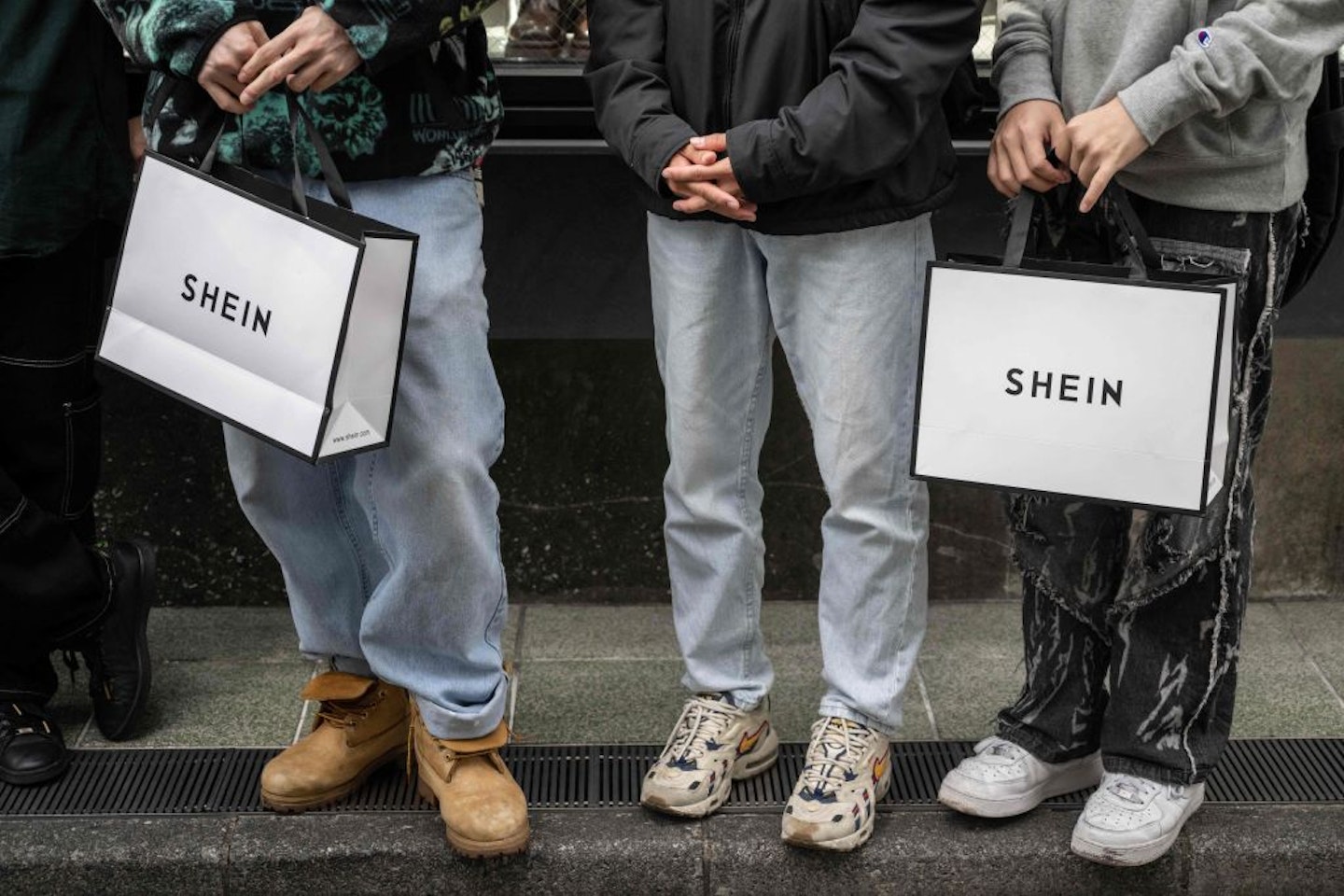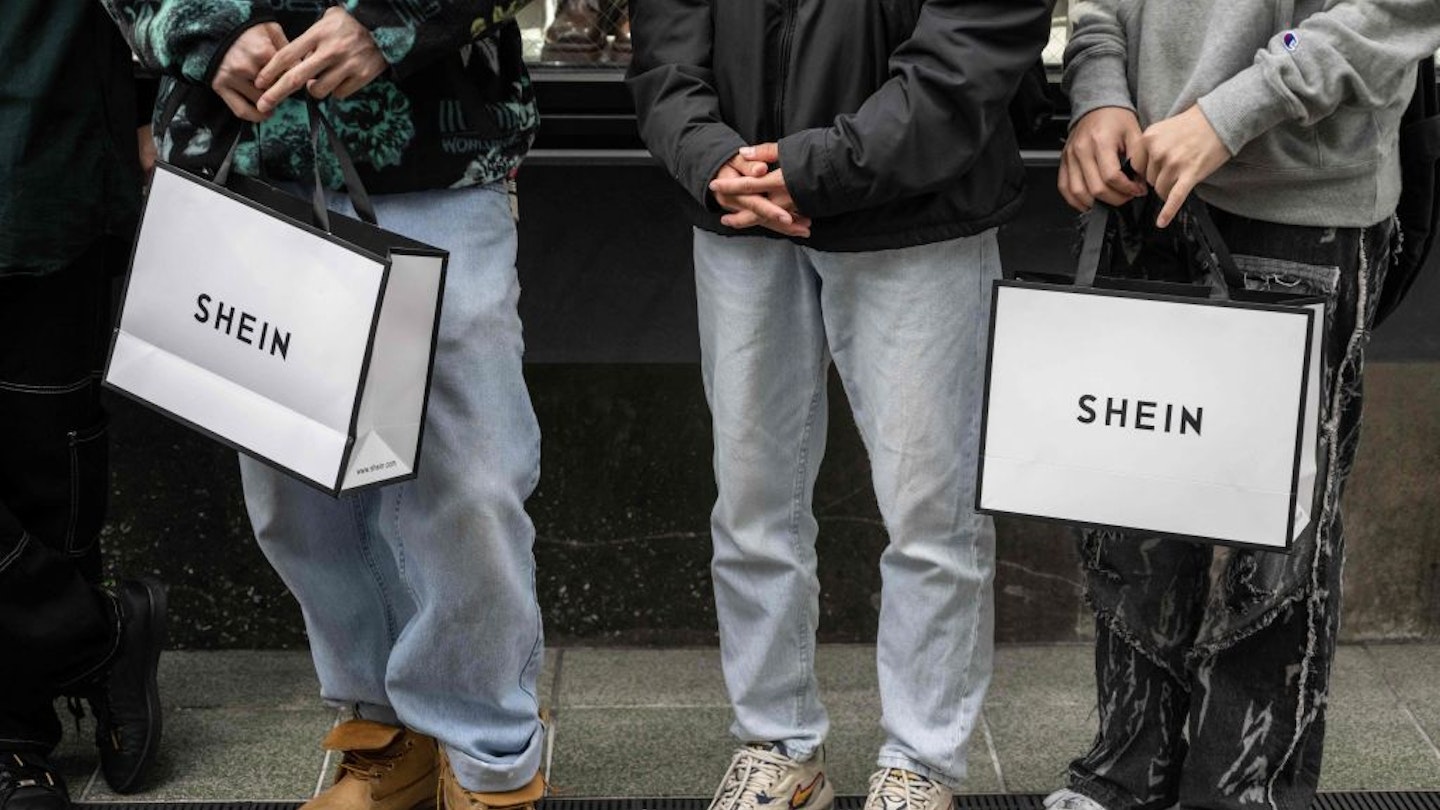You can currently buy a corset for £9.99, a tie-dye tank top for £5.99 and a pleated denim skirt for £12.99 on Shein, one of the most notorious for some, popular for others fast fashion behemoths to come out of China. But after a landmark decision in France, whose lower house of parliament unanimously approved a bill last week to impose a penalty on items of clothing made by fast fashion retailers, the hope is that, soon, the knock-on effect will be that consumers will think twice before hitting that seductive 'add to basket' button.
The bill aims to clip the wings of not just Shein, which it mentions by name, but any ultra-fast fashion brand who floods the market with enormous quantities of 'less than premium'-quality clothing that is manufactured at allegedly lightning speed often to the detriment of its supply chain workers, the planet, which is buckling under the weight of our unwanted clothes, roughly 92 billion tonnes a year, and, ultimately, the consumer, who becomes a part of the problem as they're seduced by the over-incentivised practices used by these websites, ending up with a haul after a frenzied shopping experience involving numerous countdown timers and discount-code banners. (In a statement to AFP, Shein said 'it follows best international practices in terms of sustainable development and social commitment.') If the law does come into effect after going to the senate, these companies will essentially be hit with an environmental penalty as a step towards counteracting the havoc their business models are perceived to have wreaked. According to The Guardian, 'A surcharge linked to fast fashion’s ecological footprint of €5 (£4.20) an item is planned from next year, rising to €10 by 2030. The charge cannot, however, exceed 50% of an item’s price tag.'

In a statement to Reuters, Shein responded that a serious repercussion of the bill would be to, 'worsen the purchasing power of French consumers, at a time when they are already feeling the impact of the cost-of-living crisis.' And while it's true that a lot of consumers simply cannot afford to buy expensive clothes because of their economic circumstances, Shein woefully neglects to mention the fact that the amount of clothing it produces (7,200 new garments a day, according to the bill) and the way its website operates, encouraging users to buy as much as possible, negates that very argument. Shein, and brands like it, aren't apparently catering to a woman making a minimum wage who's struggling to pay their bills every month, but the student on a budget who needs something new to wear out this weekend. What it has done, so insidiously, is to effectively inculcate a generation of online shoppers with a very dangerous mentality - that clothes are a) cheap and b) disposable. So buy as much as you want.
Will these penalties spell the beginning of the end for ultra-fast fashion brands? In France, which let's not forget has a flourishing luxury fashion industry to protect, maybe. Unfortunately for the UK, Jeremy Hunt, Chancellor of the Exchequer, might be about to take a step in the opposite direction. As Tiffany Darke mentions in her opinion piece for The Guardian: 'Shein initially tried its luck in New York, but was soon seen off by legislators who demanded more supply chain transparency than the company wanted to give. So now it is in London, knocking at the door of Jeremy Hunt, who, it appears, is delighted at the prospect of such a large bundle of money landing on the ailing London Stock Exchange.' It's rather like a game of international Whac-A-Mole, with one door closing briefly only for a window to open. But if we're going to stop temperatures rising at break-neck speed, to stop dumping second-hand clothes in landfill, some of which might have been worn a handful of times (at best), to stop buying clothes we don't need, something needs to change - and it's up to retailers, governments and, yes, us as consumers to make it happen. Because there's nothing fashionable about destroying the planet, one garment at a time, for profit or for the 'gram.
Natalie Hammond is Grazia’s Senior Fashion News Editor. She loves winter, hates summer and can often be found writing about the weather (and what on earth to wear).
